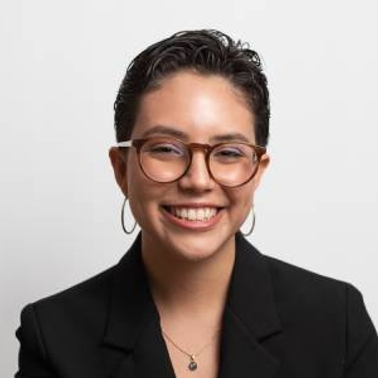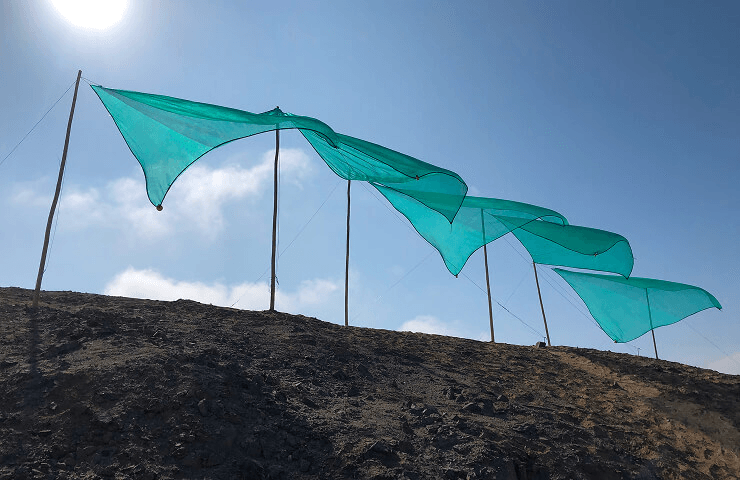- Home
- We Are Alumni
- Epic Awards
- Andrea Cáceres
Andrea Cáceres
Andrea Cáceres

"Water is not just a necessity, but a source of dignity and empowerment for all."
Born in Mexico City, raised in Lima, and now based in Madrid, I have dedicated the past five years to leading The AWA Project, a youth-led organization committed to fostering equality between people and water. Through AWA, I’ve had the privilege of guiding a global network of passionate volunteers who are advancing education, advocacy, and innovative grassroots initiatives like fog harvesting technology in Peru. My passion and work around water justice and youth empowerment has brought me to global platforms such as World Water Week, where I was recognized as an Arup Young Water Professional, the UN Youth Assembly, and MENA Climate Week. I have also collaborated with the World Bank through the Young Water Professionals Network (NextGen ECH2O) to strengthen youth engagement in the water sector. Recognized as a Bicentennial Youth Leader by Peru’s Congress and named among the 30 Under 30 leaders in Social Impact by The Bloom, I continue to advocate for inclusive water leadership. In addition to my advocacy work, I hold a Bachelor’s degree in Diasporas and Transnational Studies from the University of Toronto and a Master’s in International Development from IE School of Politics, Economics, and Global Affairs. Professionally, I have worked across sectors, specializing in the importance of Indigenous and local community engagement in resource management and sustainable development collaboration. I currently serve as a Technical Assistant at the Office of Migratory Affairs in the Ministry of Foreign Affairs, European Union, and Cooperation of Spain, focusing on migration, international protection, multilateralism, and human rights. Throughout my journey, I remain committed to empowering young leaders and building bridges across generations, sectors, and cultures to create a more just and sustainable future.
How did IE help you get to where you are today?
As our work at The AWA Project expanded, I realized that creating lasting change required stepping beyond local action and into the spaces where water decisions were being made. This insight led me to the School of Politics, Economics, and Global Affairs at IE University, marking a pivotal moment in my journey. Thanks to the Women Empowerment Challenge scholarship, I was able to pursue a Master’s in International Development in partnership with the United Nations System Staff College, an opportunity that would have otherwise been beyond my reach. While it was an honor to be recognized among the top three students in my cohort and named to the Dean’s List, the true value of my time at IE came from the community it nurtured. It was the network of like-minded students, professors, and alumni who believed in our mission, supported our work, and helped amplify its impact. Today, IE students and alumni continue to play an active role in AWA as volunteers, leading the global youth water movement and equipping young people worldwide with the skills they need to drive meaningful change in their communities.
In what way is your work impacting the world?
Over the years, The AWA Project has made significant strides in empowering youth and advocating for water justice globally. Through initiatives like the AWA Ambassador Program and our participation in various webinars and workshops, we have equipped over 500 young leaders with the tools to implement water projects and advocate for sustainable water practices in their communities. Our involvement in global forums such as World Water Week, APEC Youth Forum, the UN Youth Assembly, and MENA Climate Week has given us a platform to amplify marginalized voices and emphasize the importance of youth inclusion in water management. We have also led innovative projects like fog harvesting in Ihuanco, Peru, which provided the community with a sustainable water source during an emergency setting (COVID-19). Through our podcast Water Voices Around the World, blog, research, and social media, we've democratized access to water information, educated and engaged global audiences on water-related challenges, and amplified the voices of youth and marginalized communities. Strategic partnerships with organizations like Team Bertho, SAYWiW, FONDEMAR, and Next Generation United Nations have strengthened our collective efforts to influence water governance, while our continued commitment to advancing water rights and sustainability drives meaningful change worldwide. None of this would have been possible without our global network of volunteers, representing 10 different nationalities, each contributing unique perspectives to our pursuit of water justice.
What drove you to work for a cause that believes in the greater good?
Water is often seen as a symbol of life, but for too many, it exists at the intersection of struggle and resistance. Growing up between Mexico and Peru, I learned that our relationship with water is complex. Yet, within this complexity, one truth remained clear: water is not just a statistic or a commodity, but a sacred connection passed down through generations. My grandfather taught me that water holds memory, carrying the voices of those who came before us, meaning that protecting it is not just a responsibility; it is our inheritance. Yet, in our society, water is usually reduced to policy debates and infrastructure plans, with little regard for the people who live closest to it. The fight for water justice has never been about one voice or one story, it has always been about collective action. Therefore, representation of marginalized voices in the water sector is not just symbolic; it is transformative. When we take up space, we create space for others.
